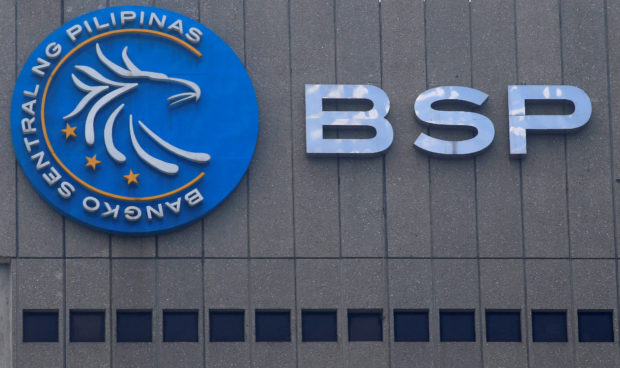
A logo of Bangko Sentral ng Pilipinas is seen at their main building in Manila, Philippines. REUTERS/Romeo Ranoco/File photo
Fears of a global economic slowdown tightened the tap on foreign direct investment (FDI), with inflows to the Philippines falling by 10 percent to $6.7 billion in the nine months to September this year from $7.5 billion in the same period of 2021.
This prompted the Bangko Sentral ng Pilipinas (BSP) to slash its full-year forecast for FDI inflows in 2022 by one-fifth to $8.5 billion from the $10.5 billion forecast during the third quarter.
“FDI remained subdued amid lingering concerns on global economic slowdown, higher inflation, and the depreciation of the peso,” the BSP said in a statement.
For July-September, the first full quarter of the Marcos administration, net inflows were recorded but this shrank by 36 percent to $1.9 billion from $2.96 billion in the third quarter of 2021.
Updated projection
The data represent capital that actually moved, instead of avowed commitment or planned investments, which may or may not be realized.
The BSP said the updated projection for FDIs was lower taking into account the result for the first nine months of the year as well as the downscaled global growth outlook and tighter financial conditions.
In September alone, FDI inflows shrank by 7.9 percent to $626 million from $680 million in the same month of 2021, and by 19 percent from $774 million a month earlier in August this year.
The decrease last September was a reversal from the 35-percent year-on-year surge recorded in the same month last year when net inflows ballooned from $503 million.
The September result this year brought the year-to-date or January-September readout to a 10-percent drop that was also a reversal from a 46-percent jump in the same nine months of 2021.
Year-to-date net inflows as of September was just about half of the full-year net inflows of $12.4 billion in 2021.
From January to September, nonresidents’ net investments in debt instruments fell by 12 percent to $4.7 billion this year from $5.3 billion last year.
Michael Ricafort, chief economist at Rizal Commercial Banking Corp., said net inflows in September were still among the lowest monthly level in more than a year.
Ricafort said recent improvements in the Philippines’ foreign relations, especially with developed countries that are the biggest sources of foreign investments, would help improve the FDI data in the coming months.
This is especially so “if ESG [environment, social and corporate governance] standards are increasingly adhered to in the country, as encouraged by regulators worldwide as basis for investment decisions,” he added.